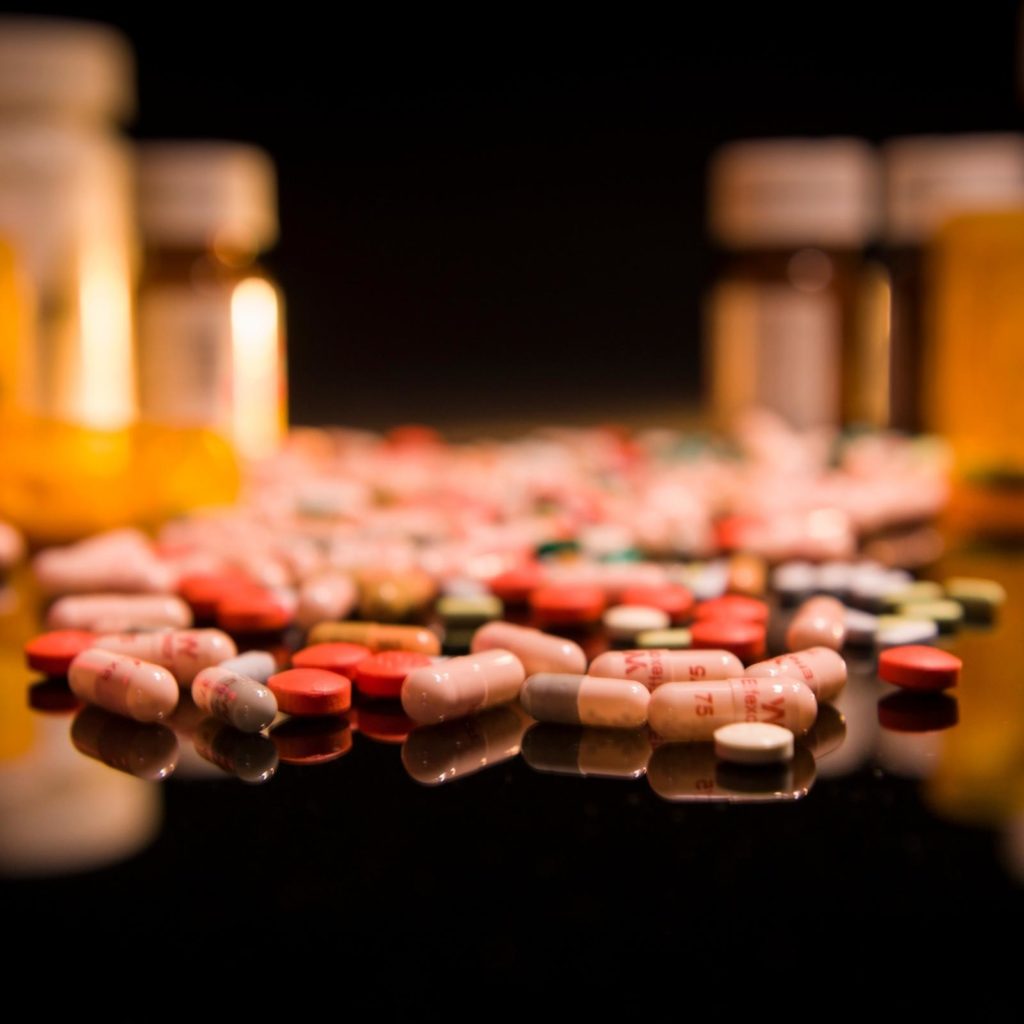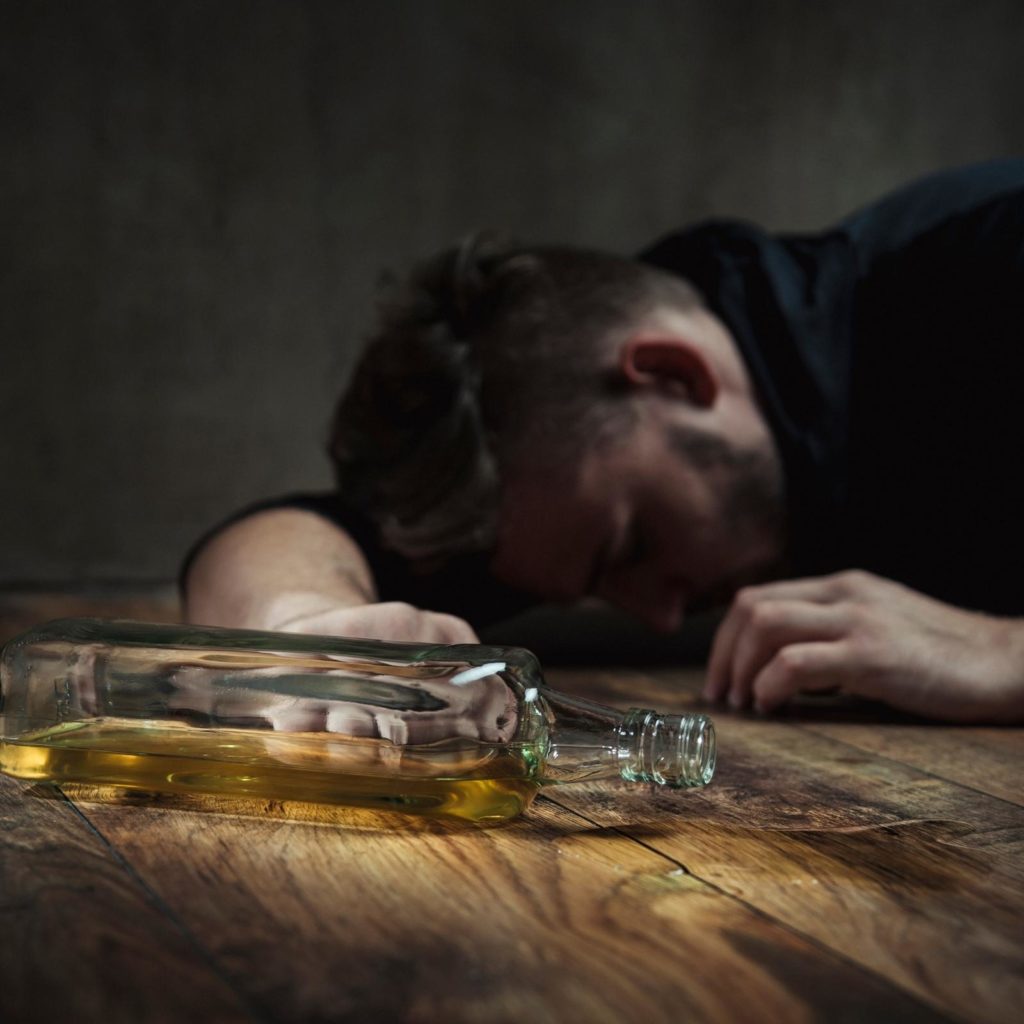Dangers of Mixing Benzos and Alcohol
Combining medications (prescribed or not prescribed) with alcohol can have unpredictable and unwanted consequences. We can help ourselves, our friends, and our community by understanding the dangers and taking steps to prevent harm and get alcoholism treatment.
Most fatal overdoses involve the use of more than one type of drug (poly-drug use). If you’re taking any medications—either those prescribed by a doctor or over-the-counter cold and allergy medicine—it’s not a good idea to drink alcohol. Often, the medication label will warn you not to—because of the possible dangerous side effects. Read the label! You’ll find lots of good info, like:
- The medication’s active ingredients, including ingredient amounts in each dose
- The medication’s purpose and uses
- Dosage instructions—when and how to take it
- Specific warnings about interactions (with alcohol and other drugs)
- Activities to avoid
- The medication’s inactive ingredients (important to help people avoid an allergic reaction)

Some medications—including many popular painkillers and cough, cold, and allergy remedies—contain more than one ingredient that can react with alcohol. Read the label on the medication bottle to find out exactly what ingredients a medicine contains. Ask your pharmacist if you have any questions about how alcohol might interact with a drug you are taking.
Mixing prescription or illicit benzos and alcohol is dangerous because different drugs act on our bodies in different ways. The harmful effects are magnified by mixing benzos and alcohol or by using more than one drug type. For example, the more alcohol in the body, the less benzo needed to cause a drug overdose.

Get Your Life Back
Find Hope & Recovery. Get Safe Comfortable Detox, Addiction Rehab & Dual Diagnosis High-Quality Care.
Hotline(844) 597-1011Benzo and Alcohol Interaction
Over the years, the treatment for alcohol detoxification has evolved from the use of a gradual weaning schedule of alcohol itself to the use of benzodiazepines and the newer miscellaneous drugs.
Alcohol dependence is an increasing and pervasive problem. Alcohol withdrawal symptoms are a part of alcohol dependence syndrome and are commonly encountered in general hospital settings, in most departments. Alcohol withdrawal syndrome ranges from mild to severe. The severe complicated alcohol withdrawal may present with hallucinations, seizures, or delirium tremens.
Benzodiazepines have the largest and the best evidence base in the treatment of alcohol withdrawal and are considered the gold standard [1] WHEN taken as prescribed or with medical supervision. It doesn’t mean you should mix benzos and alcohol as benzo can only be an effective medication for those who stopped drinking alcohol and are experiencing withdrawal symptoms.
Alcohol and Benzos Combination Effects
The abuse of prescription drugs has led to a significant increase in emergency department (ED) visits and drug-related deaths. Opioid pain relievers (OPRs) and benzodiazepines are the prescription drugs most commonly involved in these events. Excessive alcohol consumption also accounts for a significant health burden and is common among groups that report high rates of prescription drug abuse.

When you have taken benzos and alcohol together, alcohol increases central nervous system depression and the risk for overdose. To quantify alcohol involvement in benzodiazepine abuse and drug-related deaths and to inform prevention efforts, the Food and Drug Administration (FDA) and CDC analyzed 2010 data for drug abuse-related ED visits in the United States and drug-related deaths that involved benzos and alcohol in 13 states. The analyses showed alcohol was involved in 27.2% of benzodiazepine drug abuse-related ED visits and 21.4% of benzodiazepine drug-related deaths. These findings indicate that alcohol plays a significant role in benzodiazepine abuse. Interventions to reduce the abuse of alcohol and these drugs alone and in combination are needed. [2]
Get Help. Get Better. Get Your Life Back.
Searching for Accredited Drug and Alcohol Rehab Centers Near You?
Even if you have failed previously and relapsed, or are in the middle of a difficult crisis, we stand ready to support you. Our trusted behavioral health specialists will not give up on you. When you feel ready or just want someone to speak to about therapy alternatives to change your life call us. Even if we cannot assist you, we will lead you to wherever you can get support. There is no obligation. Call our hotline today.
(844) 597-1011Co-occurring Disorders
A substance use disorder (SUD) is a mental disorder that affects a person’s brain and behavior, leading to a person’s inability to control their use of substances such as legal or illegal drugs, alcohol, or medications. Symptoms can range from moderate to severe, with addiction being the most severe form of SUDs.
Co-occurring disorders can include anxiety disorders, depression, attention-deficit hyperactivity disorder (ADHD), bipolar disorder, personality disorders, and schizophrenia, among others.
A person with a dual diagnosis has both a mental disorder and an alcohol or drug problem. These conditions occur together frequently. About half of people who have a mental disorder will also have a substance use disorder at some point in their lives and vice versa. The interactions of the two conditions can worsen both. [3]
We Level Up counselors understand and can make a drug addiction therapy recommendation or dual diagnosis treatment best suited to your needs.
Dual Diagnosis Treatment Centers Near Me
Receive treatment for co-occurring disorders today.
The We Level Up treatment center can help with inpatient addiction therapy programs exclusively. Because each client is different and requires unique, comprehensive care according to their situation, our staff of well-trained physicians and nurses first begin the client relationship with a detailed one-on-one assessment.
We Level Up is a multi-faceted primary drug and alcohol dual diagnosis program treating secondary co-occurring mental health conditions and polysubstance abuse. The We Level Up team uses evidence-based proven methods to generate cutting-edge solutions to substance abuse and behavioral health challenges. With support programs targeted towards families and individuals. We work to improve the health of the public and of individuals from every behavioral and related integrated addiction primary and mental health secondary treatment option. This includes constant research and innovation on substance abuse and integrated co-occurring mental health treatment models paired with individuals in a conducive environment.
First-class Facilities & Amenities
World-class High-Quality Addiction & Mental Health Rehabilitation Treatment
Rehab Centers TourRenowned Addiction Centers. Serene Private Facilities. Inpatient rehab programs vary.
Addiction Helpline(844) 597-1011Proven recovery success experience, backed by a Team w/ History of:
15+
Years of Unified Experience
100s
5-Star Reviews Across Our Centers
10K
Recovery Success Stories Across Our Network
- Low Patient to Therapist Ratio
- Onsite Medical Detox Center
- Comprehensive Dual-Diagnosis Treatment
- Complimentary Family & Alumni Programs
- Coaching, Recovery & Personal Development Events
Detox for Benzos and Alcohol Withdrawal
Withdrawal from substances of abuse is an important first step to overcoming your addiction or drug dependency. However, withdrawal isn’t an effective treatment by itself. You’ll need further treatment and support to help you in the long term. [4]
Often, benzos and alcohol detox can lead to severe withdrawal symptoms. However, proper care and medical supervision will greatly reduce the chances of developing these symptoms and ensure a safe detox process. This means that the individual detoxing will be weaned off of the substance slowly and carefully. Depending on their biology, dosage, and frequency of use, the time it takes to taper off varies but is usually achieved within a few weeks.
The longer and heavier the drinking, the more prolonged and more severe detox will be. For this reason, going through the process sooner than later, and getting help, is critical to recovery.
Once fully admitted and evaluated, the 2nd stage of detox gets underway: stabilization. Based on the data provided during the admissions process, patient feedback, and the symptoms observed; our experienced team of medical addiction professionals will provide care to keep the patient stable and as comfortable as possible. [5]
Programs, services, and treatments vary. We Level Up rehab center offers inpatient substance abuse treatment. Offering co-occurring treatments. We treat the entirety of addiction and behavioral health disorders including their secondary corresponding illnesses to improve long-term recovery outcomes. Get a free health assessment and find out what treatment options are most suitable for you.
Cognitive Behavioral Therapy
Cognitive-behavioral therapy (CBT) is a widely used treatment for drug abuse and dependence to help individuals identify negative thought patterns, emotions, and problematic behaviors and learn how to make healthy lifestyle changes that decrease the urges to drink or abuse drugs and use other substances; paying particular attention to symptoms of psychosis, depression, and other co-existing mental health-related problems or dual diagnosis that are exacerbated by stress.
Counseling Services
Individual, group, and family counseling services are offered in the majority of mental health and substance abuse treatment programs to “get to the root of the problems”, improve communications and relationships, and motivate the abuser toward positive changes. . The structured guidance of a counselor helps the patient stay on track and in the right perspectives as they strive to achieve their potentials and goals of recovery.

World-class, Accredited, 5-Star Reviewed, Effective Addiction & Mental Health Programs. Complete Behavioral Health Inpatient Rehab, Detox plus Co-occuring Disorders Therapy.
CALL(844) 597-1011End the Addiction Pain. End the Emotional Rollercoaster. Get Your Life Back. Start Drug, Alcohol & Dual Diagnosis Mental Health Treatment Now. Get Free No-obligation Guidance by Substance Abuse Specialists Who Understand Addiction & Mental Health Recovery & Know How to Help.
Increasing awareness of high-risk situations and warning signs and developing avoidance strategies and coping skills for handling those situations is an important part of treatment known as relapse prevention and knowing what to do should relapse occur is equally important to ensure any long-term recovery success.
Our FREE 24-hour Hotline can help you with the resources about treatment options for addiction to benzos and alcohol. Get a free consultation now for your best-fitting treatment programs along with free rehab insurance verification. Call We Level Up today and speak with one of our addiction specialists to check your rehab insurance coverage and benefits.
As the addiction treatment community begins to realize that addiction is itself a mental disorder, the relationship between substance abuse and mental disorders becomes more complicated. The greater treatment community largely lacks a proper understanding of dually diagnosed conditions, so these conditions are still treated separately, or worse–not treated or diagnosed at all. We Level Up dual diagnosis treatment centers in Florida, California, Texas, and New Jersey are some of the facilities that have professionals trained to help treat co-occurring disorders concurrently. This type of tandem treatment provides some of the best success rates.
Get dual diagnosis treatment for individuals struggling with substance abuse and mental health disorders. We Level Up addiction counselors will discuss the average cost of the program based on the personalized treatment that works best for you.
Experience Transformative Recovery at We Level Up Treatment Centers.
See our authentic success stories. Get inspired. Get the help you deserve.



Start a New Life
Begin with a free call to an addiction & behavioral health treatment advisor. Learn more about our dual-diagnosis programs. The We Level Up Treatment Center Network delivers recovery programs that vary by each treatment facility. Call to learn more.
- Personalized Care
- Caring Accountable Staff
- World-class Amenities
- Licensed & Accredited
- Renowned w/ 100s 5-Star Reviews
We’ll Call You
Sources:
[1] Alcohol Withdrawal Syndrome: Benzodiazepines and Beyond – National Center for Biotechnology Information
[2] Alcohol Involvement in Opioid Pain Reliever and Benzodiazepine Drug Abuse–Related Emergency Department Visits and Drug-Related Deaths — United States, 2010 – Centers for Disease Control and Prevention
[3] One Is Not Enough: Understanding and Modeling Polysubstance Use – National Center for Biotechnology Information
[4] Alcohol Misuse – https://www.nhs.uk/conditions/alcohol-misuse/treatment/
[5] Stabilization Treatment Program – We Level Up New Jersey